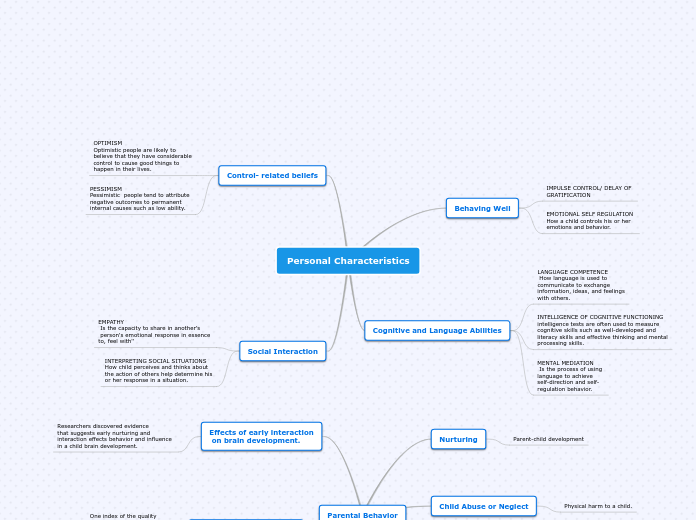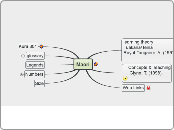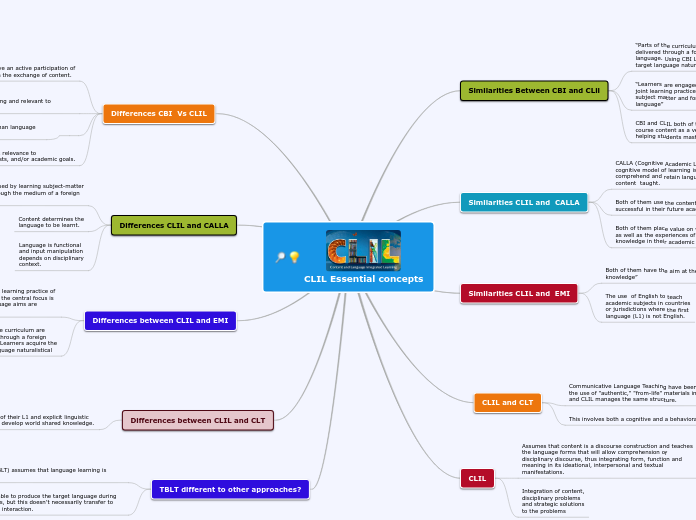по Rosita Bermudez 5 лет назад
376
Personal Characteristics
The quality of the parent-child relationship significantly influences a child's development, particularly through nurturing behaviors and supportive interactions. Verbal and cognitive stimulation, such as reading and asking questions, enhances cognitive skills and language competence, contributing to a child'









